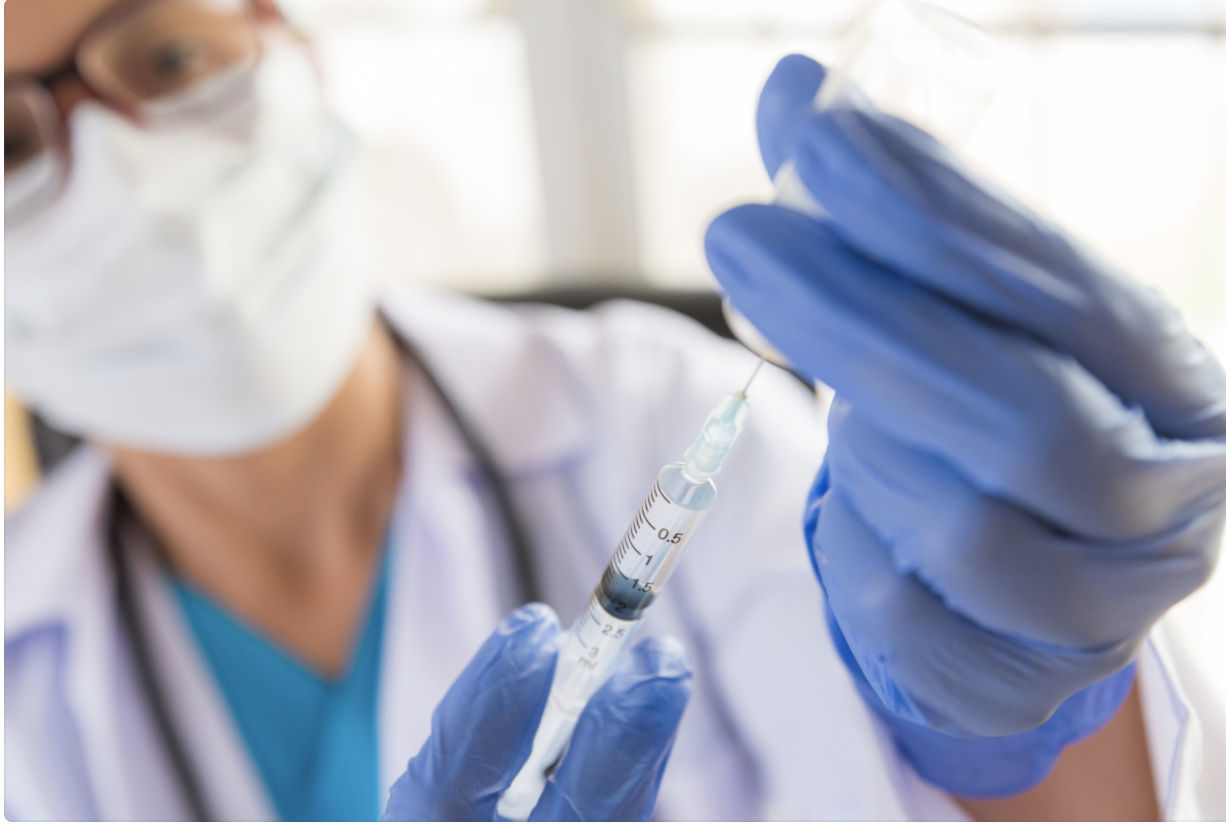Double Shot: Updates On A COVID-19 Vaccine Booster
June 16, 2021

First, some data to provide context for where we stand regarding COVID-19 in the United States. We now have officially confirmed 600,000 Americans dead from COVID, more than the combined totals from World War I, II, and Vietnam. On a positive note, 86% of those 65 and older are now at least partially vaccinated and 75% of that population is fully vaccinated. And deaths from COVID-19 have dropped 90% since their peak in January, though hundreds of people are still dying every day and half of those deaths are occurring in people ages 50-74, almost all of whom are unvaccinated. And there remain pockets of high infection, where vaccination rates are far from the 70-75% necessary to achieve a level of herd immunity.
The question becomes, for those of us vaccinated, how long will our immunity last, and will we require another booster shot (or many) to extend that immunity for the longer term? On that, the jury is still out, but there’s evidence both supporting the eventual need for a booster as well as hope that another shot may not be required. Perhaps most importantly, we are somewhat at the mercy of continuously arising variants of the virus, which have not yet broken through current vaccines but which could do so down the road. For example, the latest variant, the Delta variant (originating in India), appears to be the most contagious variant we’ve faced so far, which is of serious concern for all individuals in the US and elsewhere who have yet to be vaccinated.
On the nature of the current vaccine protection: Our bodies develop “immune memory” through both antibodies and T-Cells. Antibodies are the first line of defense, and then T-Cells play a different, additive role to antibodies, destroying the virus once it gets into cells. Variants have yet to evade the antibodies produced by the vaccines but they could in the future. As one expert has said, “Vaccines that lead to long-lived immune memory will almost certainly need to induce T-Cells. We don’t know if current COVID vaccines will do that.” The effect of the current vaccines on T-Cells and antibody memory is still uncertain, but we now have data that antibody protection from vaccines lasts at least 6 months– However, we don’t know if that will continue on indefinitely (though we are getting closer to finding out).
We do know that vaccine manufacturers are preparing for boosters, and have the flexibility to adapt to tackle new variants, as they arise, with a booster. Most experts seem to agree that the threshold for determining whether we will need a booster is if we begin to see fully vaccinated individuals becoming ill with serious COVID infections requiring hospitalization. That’s the point at which we will likely realize that we have a variant that’s broken through. If you’re a devotee of Dr. Fauci, you may want to know that he believes at some point, you will need a booster. Many of the CEOs of the vaccine manufacturers agree with that assessment, though it’s unclear whether such a booster would be a one-time shot or something modeled along the lines of influenza, such that each year you would need a vaccine that would be tweaked to respond to evolving variants. However, there is encouraging news about sustained immunity from some early trials and scientists hypothesize that those who had COVID and were subsequently vaccinated could have very strong immunity that would last for many years.
Experts seem to agree that a 3rd dose of vaccine wouldn’t hurt, but given how many millions of people have yet to gain access to any vaccine, the question is, is that necessary? Some countries, such as the UAE and Bahrain are already offering boosters because the types of vaccines they have been using already show some loss of protection. Among Americans, some of those vaccinated already have poor antibody showings, either due to immunosuppression from cancer drugs or from drugs intended to prevent organ transplant rejections. In fact, approximately 3% of US adults under age 65 take immune-suppressing drugs that may limit the benefit of their COVID vaccines. Those patients might benefit from a 3rd shot, along with health care workers, older adults, and those traveling to places with continued high rates of transmission.
One final thought: researchers are now conducting trials to determine whether mixing vaccines may produce a stronger immune response. Vaccines using different technologies may stimulate different responses. The long-term immunity protection provided by RNA vaccines, like the Moderna and Pfizer vaccines, is untested because they are so new. The bottom line here is that we are in uncharted territory with much to still learn and much to be revealed as further trials are conducted. The one thing we know with certainty is that the approved vaccines do provide a high level of protection against serious illness and death for at least 6 months. But for how much longer we don’t know. Like much of the pandemic, we continue to gain new knowledge with every passing month.







